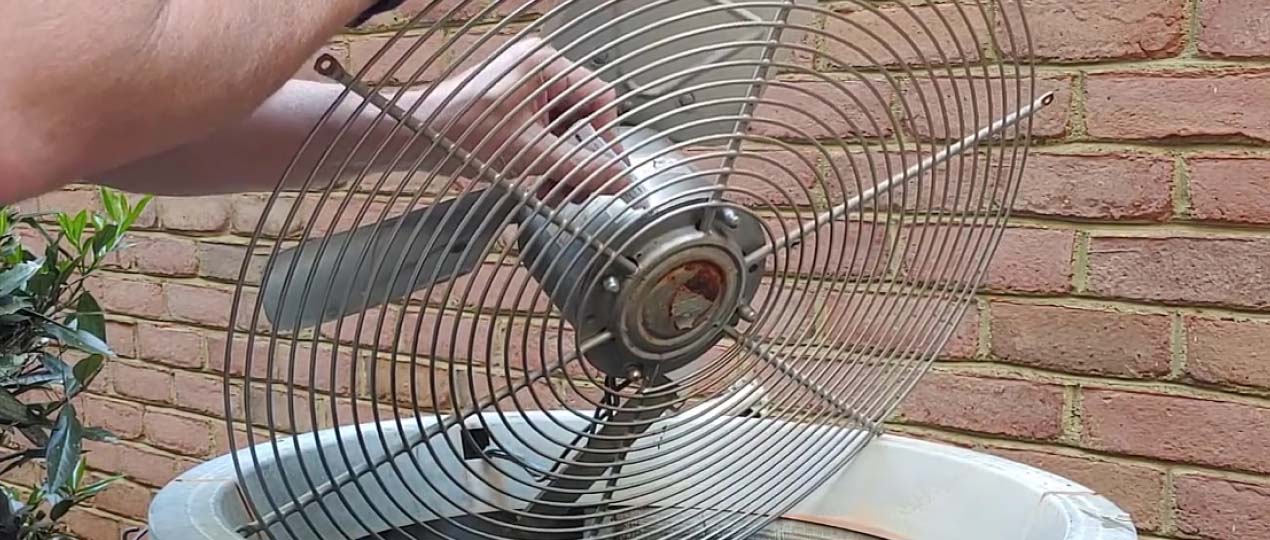
Air conditioners are indispensable in maintaining comfortable indoor environments, especially during hot seasons. A precarious yet often overlooked component in any AC unit is the capacitor, which plays a major role in starting and running the motors. Without a healthy capacitor, the entire system can struggle to switch on or operate efficiently. Knowing how to check AC capacitor correctly can save you time, money, and discomfort. We will discuss capacitor types, common warning signs, safe diagnostic methods, and proper steps.
What do capacitors do in AC system?
Capacitors work by accumulating and discharging electricity when motors demand a power surge. At startup, motors require a higher torque than they do during continuous operation. The capacitor supplies this extra push, making certain motors can overcome inertia.
When a capacitor degrades or fails, the motor may struggle to start or might not start at all. Since capacitors are subjected to heat and electrical stress, they naturally wear out over time. Spotting the warning signs early can help you take appropriate measures and keep the system from breaking down in the middle of a scorching day.
What are the different types of air conditioner capacitors?
Some air conditioners use dual-run capacitors, combining both start and run functions in one unit. Regardless of configuration, each capacitor must meet specific voltage and microfarad requirements for the system to work correctly.
There are generally two capacitor types in most residential AC:
- Start capacitors Provide the initial boost to start heavy-duty components, like the compressor.
- Run capacitors Aid in regulating the current flow once the motor is already running, maintaining voltage stability for efficient long-term operation.
If you suspect a problem, knowing how to check capacitor on AC unit is vital to catching issues before they escalate.
What are the signs of a bad AC capacitor?
Capacitors often fail gradually, showing subtle symptoms before a complete breakdown. These indicators can manifest as odd noises, delayed starts, or even noticeable physical damage. By paying attention to early warning signs, you can take prompt action, prevent additional stress on other components, and avoid sudden AC failures during high-demand seasons.
Early identification signs include the following:
- Internal damage Look for bulges, leaks, or rust around the capacitor. A swollen top or ruptured casing is a clear indicator of internal damage. Even small deformations can impair its ability to deliver that touchy surge of electrical power.
- Delayed start If your AC’s fan or compressor seems slow to engage, the capacitor could be weakening. Inconsistent power delivery from a compromised capacitor makes the motor strain to start, often resulting in higher energy bills and subpar cooling.
- Odd sounds A buzzing or clicking noise when the system tries to turn on can signal that the capacitor isn’t providing enough voltage. Persistent noises point to ongoing electrical problems and the risk of motor overheating or stalling.
Recognizing these early signs gives you a chance to act fast and ward off larger, more expensive repairs. Even a slight bulge or a sporadic rattle can warn of future failure. By staying vigilant, you extend your system’s life, warrant steady performance, and keep your energy consumption in check.
How to check an AC capacitor?

Confirming your AC capacitor is functioning properly is meaningful for smooth operation. If you’re a hands-on homeowner or just curious about HVAC maintenance, a systematic check can confirm if it’s time for a replacement. Learning how to check a capacitor on an AC unit correctly will empower you to address minor issues before they evolve into major breakdowns.
Proper testing doesn’t require advanced engineering skills, but it does demand caution and the right tools. Early detection of electrical anomalies can help preserve the rest of your system, from motors to circuits, thereby saving money and avoiding frustration.
By following a safe procedure, you’ll get an accurate indication of your capacitor’s condition:
- Power down and discharge Switch off the breaker for the AC unit to eliminate live electrical risk. Use an insulated screwdriver to bridge the capacitor terminals, guaranteeing leftover voltage is discharged safely. This step is vital for preventing serious shocks.
- Multimeter setup Set your multimeter to the capacitance reading mode. Disconnect the capacitor wires carefully, labeling them if necessary. Touch the meter conducts the capacitor’s terminals and compares the reading to the specified microfarad rating on the label.
- Physical condition Even if the multimeter shows an acceptable range, any leaks or bulges suggest degradation. If the outer shell looks compromised, the capacitor may fail soon. Always consider both electrical and physical evaluations for a comprehensive diagnosis.
Well, if you are routinely checking your capacitor, you’ll spot anomalies promptly and minimize the risk of sudden malfunction. Knowing how to check AC unit capacitor with a multimeter is a skill that can prevent hefty repair bills. A quick test every season can make a difference in your AC’s overall lifespan.
How to replace a capacitor on your AC unit?
Over time, exposure to heat and electrical load can diminish a capacitor’s ability to function. Replacing it at the right moment spares the rest of the system from strain, especially the motors and compressor. Still, a proper procedure is decisive to warrant safety and excellent performance. In the following section, you’ll learn in a structured manner.
Swapping out a worn capacitor might seem straightforward, but incorrect specifications or sloppy wiring can do more harm than good. Taking a meticulous approach verifies compatibility with your AC requirements and safeguards its components. Before you begin, gather the correct tools, verify your power is off, and proceed methodically.
Follow these steps to be sure the process is smooth:
- Find a matching capacitor Check the microfarad (µF) and voltage ratings of the old capacitor. Always opt for a replacement that meets or exceeds the manufacturer’s recommended values. Using the wrong part can result in immediate failure or damage to the motor.
- Secure the new component After disconnecting the faulty capacitor, install the new one in the same position. Make sure the terminals align correctly with the wires. Refer to labels such as “HERM,” “FAN,” and “C” to avoid mixing up connections.
- Test run Restore power and run the AC briefly. Listen for smooth starts and stable fan operation. If you hear persistent clicking, humming, or see the motor struggling, shut it down immediately and recheck your installation or the capacitor specs.
Performing this procedure accurately can revitalize your AC performance. However, if you’re unsure how to replace capacitor on AC unit safely or you suspect deeper electrical issues, consult a certified HVAC technician. Proper operation extends the service life of your air conditioner and keeps your energy consumption in check.
When should you call a professional?
After you understand how to replace a AC capacitor or even how to replace a capacitor on an AC unit, it’s still bottom-line to recognize when professional intervention is the wiser choice. Some symptoms, such as repeatedly blown fuses or frequent capacitor failures, may hint at bigger concerns like wiring faults or motor strain. In such cases, a professional will change the capacitor and diagnose the underlying problem.
Risks of DIY capacitor replacement
Venturing into repairs without the proper knowledge or tools can be risky. Although learning how to replace a capacitor on an air conditioning unit is feasible for some DIY enthusiasts, mistakes in wiring or part selection causes costly damage. An incorrectly installed capacitor might short-circuit, blow fuses, or compromise the compressor. Moreover, you risk personal injury from electric shocks if you don’t discharge the capacitor correctly. By balancing potential savings against the likelihood of errors, you can make an informed decision about if to proceed or call an expert.
Benefits of hiring an HVAC technician
Professional HVAC specialists possess the technical training to spot hidden issues while performing a capacitor change. They know precisely how to replace a/c capacitor components according to the unit’s design and local codes. Experts also advise on routine maintenance and can check if your unit is near the end of its life cycle, suggesting preventive measures if needed. While you might worry about how much to replace a capacitor, a one-time professional fix is often more economical in the long run than repeated amateur repairs. If you’re curious about how much to replace AC capacitor in your region, get a quote to compare the cost of professional service versus the potential expenses tied to DIY mishaps.
By consulting seasoned professionals, you also maintain warranty protection. Should something go wrong, you’ll have a safety net that covers parts and labor. HVAC technicians arrive equipped with industry-grade components and testing devices, guaranteeing that each step, from diagnosing potential faults to verifying correct operation, is done thoroughly and safely. Indeed, how to replace an air conditioner capacitor might be straightforward on paper, but real-world challenges can arise, making professional help invaluable.
Conclusion
If you’re noticing odd sounds, delayed starts, or have questions about how to check if AC capacitor is bad, don’t risk further damage. Superior HVAC Service specializes in thorough AC inspections and swift capacitor replacements to restore your comfort fast. Our technicians are trained to detect even minor issues that might evolve into major breakdowns.
We use certified parts and follow strict safety protocols to assure seamless performance. If you’re curious about how to replace capacitor in AC unit or simply need an expert opinion, contact Superior HVAC Service. Protect your investment and enjoy consistent cooling with our top-tier, customer-focused solutions!
Trust us to provide cost-effective and long-lasting solutions for any HVAC issue.
Order the best specialist in Canada Now (866) 545-6460



